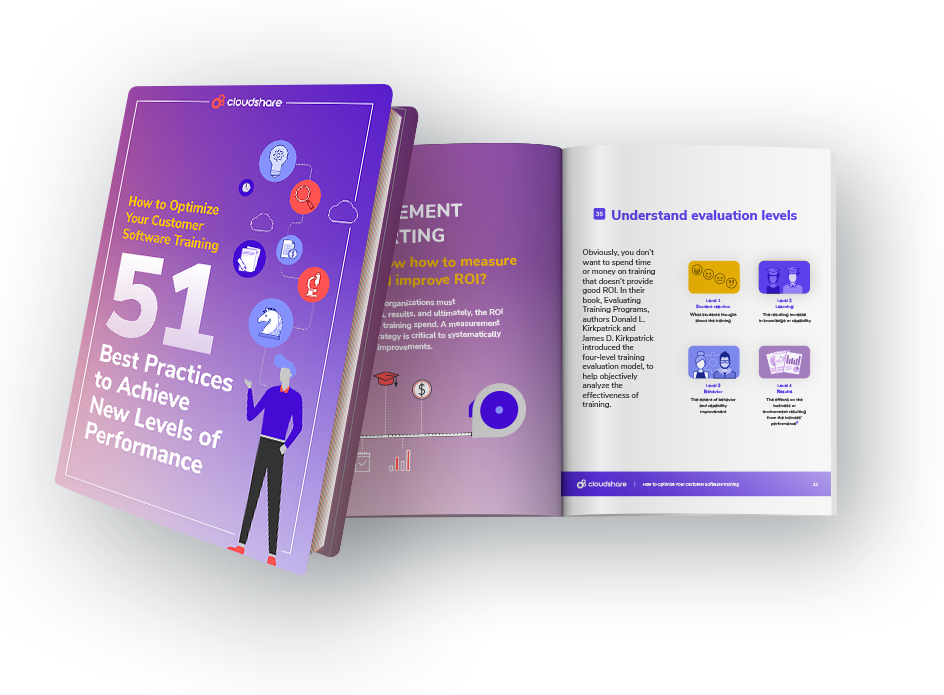Corporate E-learning vs. E-learning in the Education Sector: Definitions, Differences & Use Cases
To get articles like this free in your inbox, subscribe to our newsletter.

Everyone knows that education is the transfer of knowledge from an instructor to students who need it. You’ve finished education when you were in grade school, and there’s a high chance you might still need it in your professional life.
It’s worth knowing the differences between e-learning in the education sector and corporate e-learning. Corporate training, in a nutshell, is practical knowledge with an emphasis on hands-on experiences. You should gain immediate value out of corporate coursework. Academia focuses more on general knowledge that does not require immediate application.
The two definitions overlap but are fundamentally different. Let’s dig a little deeper into the definitions and use cases of both types of e-learning.
Corporate E-learning
The objective of e-learning for professional development is to have the knowledge and skills required for a specific job in a company’s workflow. Hands-on work is valued here, so expect conferences and even workshops to be part of it.
Businesses invest in corporate training to fill in skill gaps. Employees can then work uninterrupted, and customers can get the most value as possible out of the business’s products or services. Corporate e-learning is thus mainly for onboarding new staff and helping clients achieve success.
Other traits of corporate online training include:
- Specific material, especially for a technical skill or relevant concept
- Fast-paced instruction, generating skills that are used almost immediately
- Career-oriented focus since it’s meant to advance the business as a whole
Assessing success in corporate training is mostly about measuring key performance indicators and how they change as a result of the training. Long-term benefits for the organization as a whole are the main goal here.
51 Best Practices to Boost Customer Software Training

E-learning in Academia
You have experienced academic learning before. After learning through modules and lectures, you use your knowledge to pass tests and write reports for the instructors.
Characteristics of academic learning usually include:
- General subject matter such as Mathematics and Science, which can apply anywhere.
- Focus on information quantity over speed. Business learning, in contrast, encourages microlearning to fit into the busy schedule of most professionals.
- Theoretical knowledge. Most skills you pick up at school are theoretical. You probably don’t know how you will use the knowledge in the future.
Assessing success in an academic setting mostly comes in the form of test scores and marks for schoolwork.
How the Two Are Similar
Educational learning and virtual corporate training are slowly becoming more similar. Both may pick up the same new technologies and trends.
For example, the use of modern technology like e-learning has become a staple of blended learning in corporate training for a long time, and some colleges are starting to use it more often.
Schools and companies alike are also picking up on mobile learning since most students and working professionals have smartphones on them at all times.
The Major Role of E-learning
The most significant shared trait between corporate and academic learning is the use of the Internet to enhance the experience. Why do businesses choose e-learning compared to regular instruction? E-learning in both corporate and educational settings makes the process more cost-effective and efficient.
- Flexible. Since you can start learning on any Internet-enabled device, time and location are no longer factors. Participants can interact with the material remotely, freeing up busy schedules and making everything more convenient.
- Engaging. E-learning platforms now offer multimedia and collaboration features, such as videos and live chats. The result is better knowledge retention.
- Cost-effective. It’s easy to update and manage an online course with the right platform. You can reuse content without any cost as well.
Many online training platforms have fast setup times as well. They offer other nice-to-haves like instant analytics on participant progression.
The Difference Between E-learning and Online Learning
E-learning and online may seem similar, but there’s one subtle but important difference between the two.
E-learning refers to the online interaction between an instructor and a participant or between a student and a teacher. This interaction is remote, exemplified through virtual lectures and communication.
Online learning is exactly what it sounds like. It’s any type of learning done on the Internet. This term covers e-learning as well as blended learning, where traditional in-person instruction combines with remote, Internet-based learning.
This blended learning model is popular in corporate training and most university classes, as it combines the familiarity of the brick-and-mortar classroom with the flexibility of online platforms.
Ready to Transform Your E-learning Capabilities?
The way we interact with education resources is changing. Digital transformations have accelerated the adoption of digital platforms that make online learning possible.
CloudShare continues to provide online learning environments that cater to businesses and any organization that wants to deliver empowered digital learning experiences.
Are you interested in seeing what CloudShare can do for your digital learning programs? Book a demo with one of our online learning specialists today.
What you should do next…
1. Subscribe to our newsletter:
Subscribe to our newsletter below for the latest news, advice and thought-leadership for software professionals. Or visit our blog to browse our most recent articles.
2. Learn how virtual labs can grow your business:
To learn more about how CloudShare helps software organizations grow revenue, increase efficiency and improve quality, visit our resources page. You’ll be able to browser dozens of valuable white papers, eBooks, webinars, case studies, and brochures.
3. Get a FREE, no obligation demo:
Discover just how easy it is to create your cloud environment—in minutes! One of our friendly virtual labs experts will be happy to:
- Show you the platform in action
- Calculate pricing for your business
- Set you up with a 14-day free trial
- Answer any questions you have
- No pressure or obligation